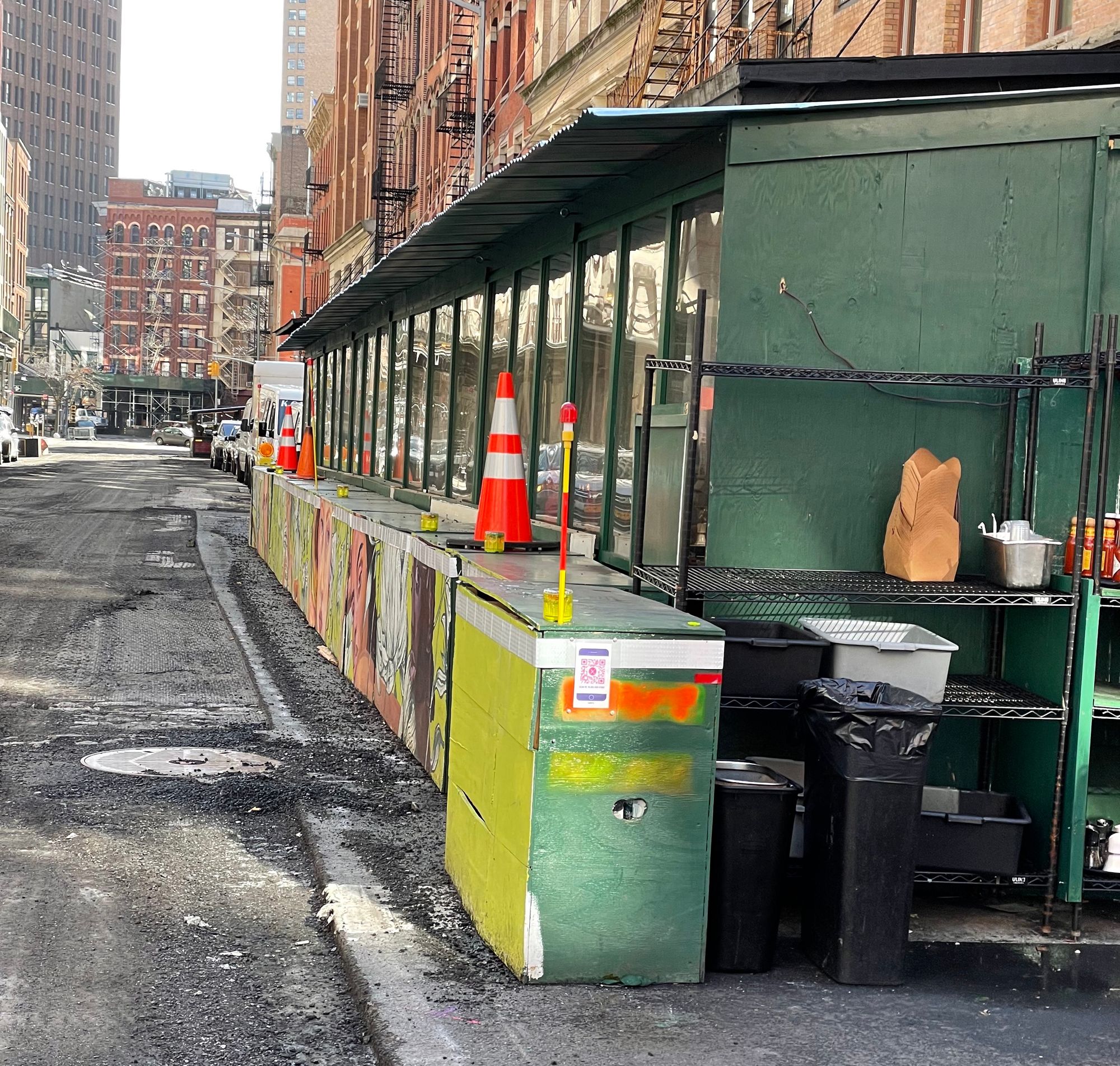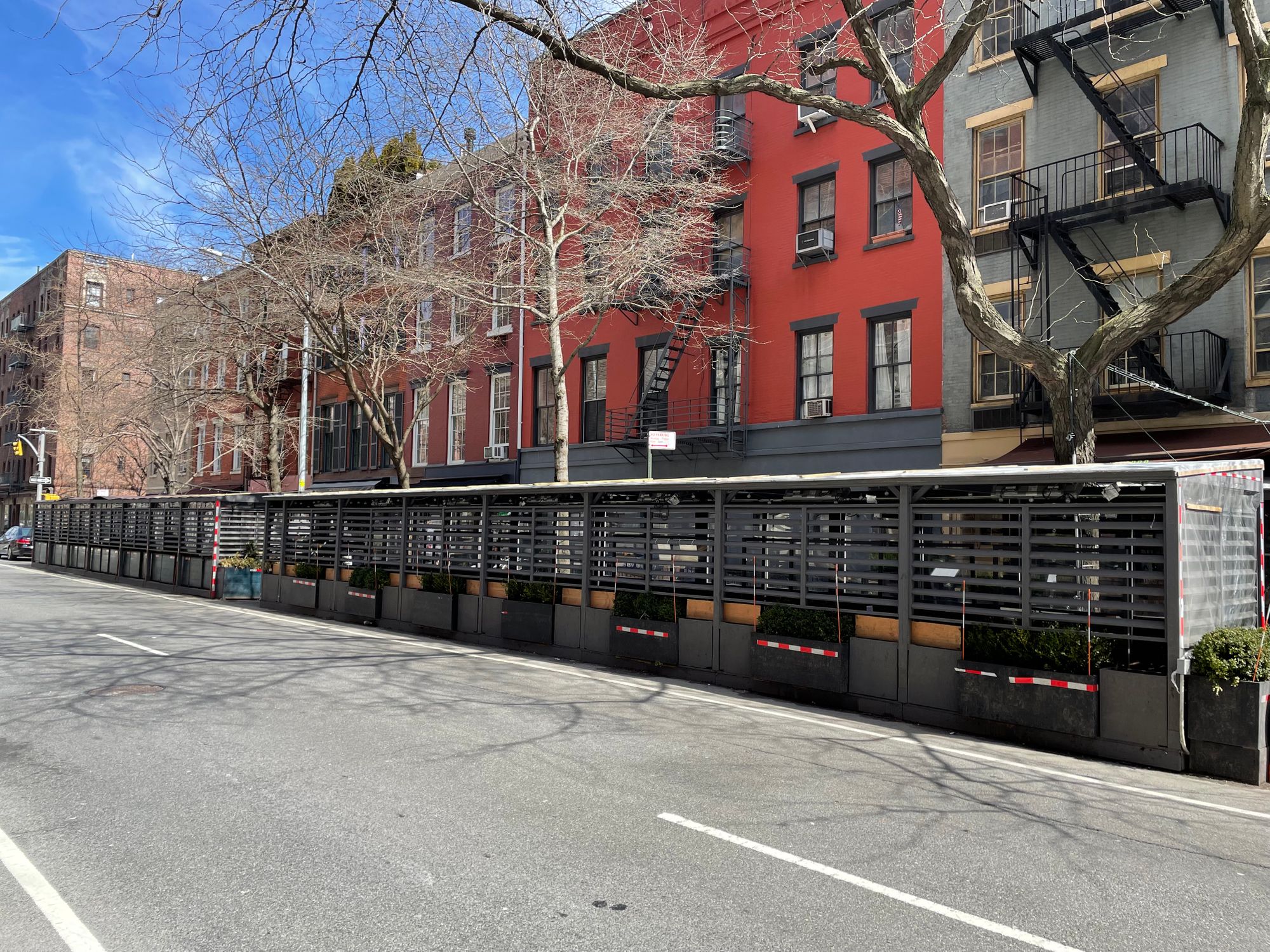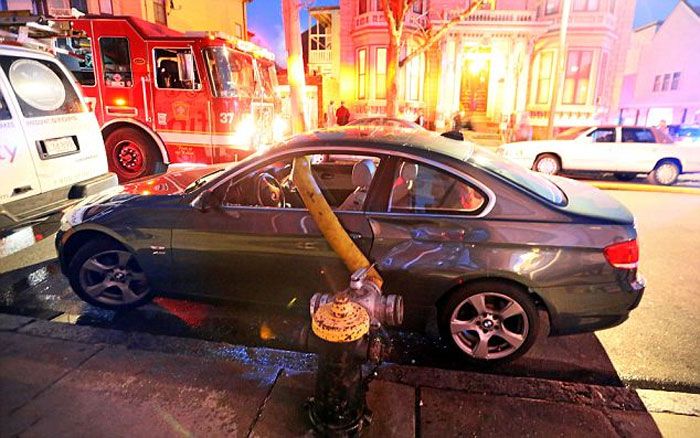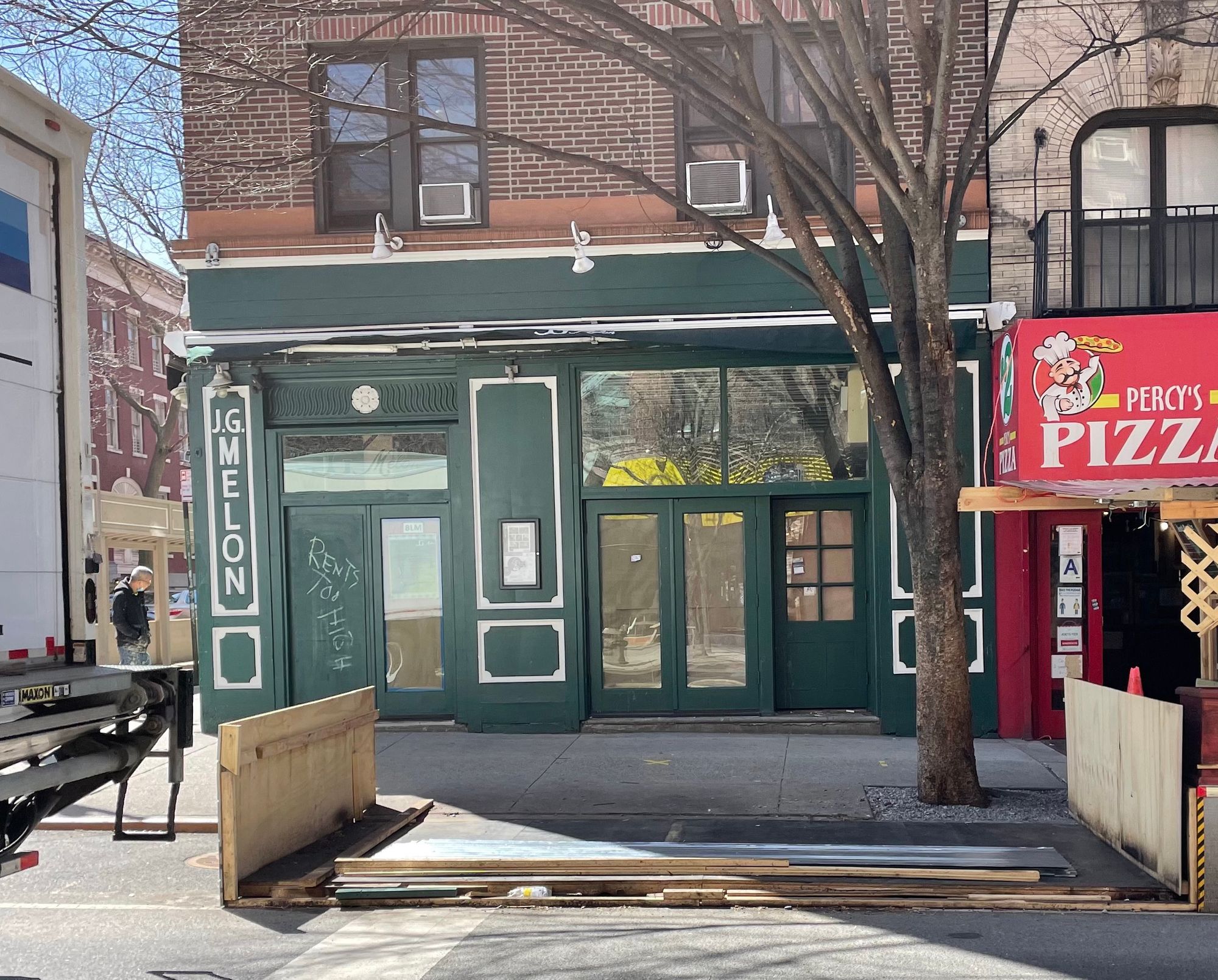I remember my application to the CIA involved listing the questions I'd like to answer if I was to have to break into a building to steal something. There are the obvious things... like building plans and security schedule, but the less obvious things like personality profiles of the employees in the building.
NY, like other big cities, has had to figure out ways to keep restaurants alive during the pandemic. At a high level, we can all agree we want these small businesses to survive AND enjoy their services to get through pandemic stress.
So it's easy to jump to make the outdoor cafes sustainable and permanent. In fact, San Francisco's mayor has just introduced legislation to do that. And, unrelated to the pandemic but certainly accelerated by it, Paris' mayor has taken the lead to create a 15 minute city.
In an emergency, anything goes because it's about survival not analysis. However, I'm pretty sure that minimum viable urban planning should not be a thing.
Questions to ask as outdoor cafes transform our cities
How do we safely get food deliveries to restaurants without blocking traffic?

How do we maintain street paving when there are semi-permanent restaurants covering the ground?

How do emergency services get through these structures? How do they even know what to expect when they arrive at a scene?

Is there any responsibility of the city to consider these structures, or do the firemen do what they do to cars parked at hydrants?

What happens to these outdoor spaces when restaurants go out of business?

These are simple questions that pop into my head as I walk around NYC, I'm sure there are many others besides the obvious ones around how we prioritize the use of outdoor space like how much of the sidewalk can they use? Or, how to manage a bike path that now runs through an outdoor restaurant?
Just to be clear, my opinion on the answers to these questions doesn't matter (love the outdoor eating, hate the fact that cars take up so much space, in case you care). I happened to take some photos this morning of these questions in real-life, so was thinking about them when my beautiful wife sent me this article from the Wall Street Journal:
Questions to ask about remote work
We know that the future holds some mix of hybrid work. And, that there will be some adjustments over time about what that means, just like we're trying to figure out the broad parameters of how much sidewalk a restaurant can use or how we enforce city compliance.
But there are going to be different questions that arise similar to the non-obvious ones that I list for restaurants above.
A few that come to mind:
- If we're optimizing remote work for employees, do we consider their spouses/partners schedules when there are two working adults in the family? And, before you say "why should we?" I ask: Why are we incorporating remote in the post-pandemic work-world? Why not go back to how it was before? What are we trying to capture from the way we've been working during the pandemic? Is it lower greenhouse gas emissions because of less commuting? Or, lower stress because employees get a little more time back in their day? Or, are we trying to keep families together more?
- Are companies going to consider remote work as simply shifting space? Or, do enough companies consider time-shifting too and the implications that asynchronous work bring to the culture? Space and time. Is remote work about space or about time, or some mix of both? Of course, many companies may be doing so amount of both without really thinking about it, but I always believe it's better to have a conversation about something than to pretend it's not happening (or worse, hope it sorts itself out).
- Everyone needs a place to work. Younger people often have roommates, others have families. How do companies make sure that an employee's work-from-home environment reflects positively on their work culture? Does "you have to wear a suit and tie" to the office transform into "you have to have a green screen and light setup"1 so that you appear professional (see my friend's call for 2021 to be the 'year of no nostrils').
These are, in fact, hard questions. I don't know the answers. I do know that I don't believe that most companies will put the right amount of thought into their answers, or provide the diverse perspectives necessary to come to inclusive solutions.
I think it's really useful to ask good questions. It's easy to think about a topic, repeat the "usual sayings" and move on. It's really interesting to pause, and reflect. To explore by asking better questions about who your customer is or about the jobs your customers hire your product for. In that pause, in that silence after the question is asked but before an answer is formed, there's room for deep work to be done that moves us all forward.
Don't waste the opportunity.
1 These are two quality products that will give you quick upgrades to your professional online presence that don't break the bank, or require a lot of skill to setup.


